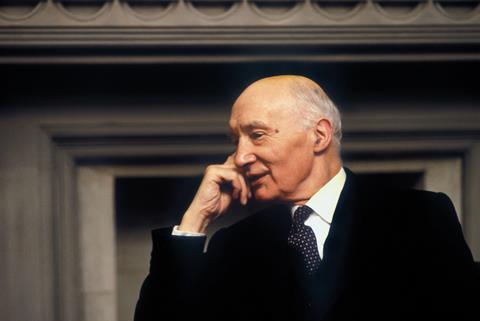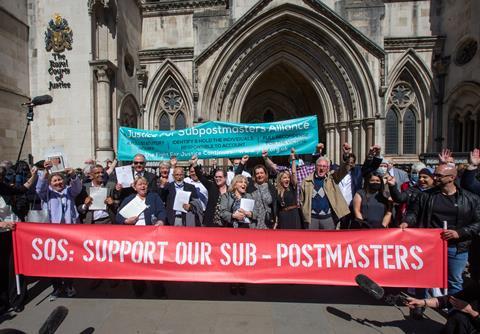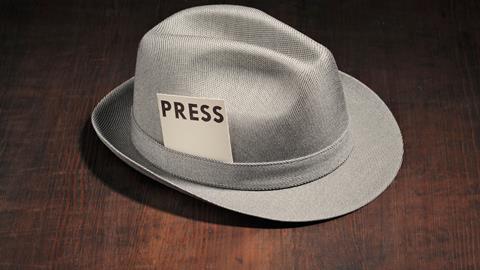Court reporters may be an endangered species but the vital service they provide in terms of public education and open justice must be protected
Court reporting has been around for centuries yet, despite a litany of technological developments, it largely remains the same as it ever was: a reporter wanders into court, sits down, listens and scribbles, then constructs their notes into a (hopefully) compelling narrative.
Obscure language on points of law goes in, stories about real people caught up in the legal system come out. The job of the court reporter is rarely easy or glamorous, but it is a vital public service.
The court reporter acts as ‘the eyes and ears of the public’, the ‘watchdog of justice’ scrutinising the legal system on behalf of citizens who – as Lord Burnett recently noted – are mostly informed about what takes place in most courts through the media.
Lord Denning once described the court reporter for the Press Association, the national news agency for the UK and Ireland, as the anonymous journalist who ‘says nothing but writes a lot’.
The judge said nearly 70 years ago in The Road to Justice that the then-ubiquitous PA hack ‘notes all that goes on and makes a fair and accurate report of it [and] supplies it for use either in the national press or in the local press according to the public interest it commands’.
Those days are no more. A guide at the Royal Courts of Justice in London always stops outside the press room – opposite the cells, incidentally – to tell bored tourists how the 30 reporters who once filled the room with smoke and hot air now number just half a dozen (on a good day).

The apparent decline in the number of specialist court reporters – and the number of journalists attending court at all – is the subject of a small number of academic studies, most recently by Richard Jones of the University of Huddersfield.
He found that fewer reporters are spending time in court, potentially to the detriment of the principle of open justice – which Lord Justice Toulson memorably said ‘lets in the light and allows the public to scrutinise the workings of the law, for better or for worse’.
Jones’s work builds on a similar study by researchers at the University of the West of England, which suggested (from an admittedly small sample – one week at a single court) that hearings at the magistrates’ court are rarely covered by local or national newspaper journalists.
This concern – that reporters no longer attend courts, or at least not as frequently – has been repeatedly stated by journalists, lawyers, judges and academics for approaching two decades now. But little, if anything, has been done.
The BBC-funded Local Democracy Reporting Service, for example, provides journalists to media organisations to report on local authorities and the like. But a senior BBC executive told MPs earlier this year that there are no plans to expand into court coverage.
And the Cairncross review, aiming to set out ‘a sustainable future for journalism’, barely mentioned court reporting – an oversight Jones described as ‘a surprising omission considering the centrality of covering institutions such as the courts in normative accounts of journalism’.
Indeed, legal academics Jason Bosland and Judith Townend have previously recommended the creation of a ‘fully state-funded open justice advocate’ to intervene in legal proceedings to remedy ‘the media’s declining role as the institutional defender of the open justice principle in the courts’.
This comes amid a backdrop of growing concern about the use of privacy law – particularly after the Supreme Court’s landmark ruling in ZXC v Bloomberg – and anecdotal evidence of more frequent applications for anonymity and other reporting restrictions in both criminal and civil courts.
'[The Single Justice Procedure] may be the first step on a roadmap to make the lower reaches of the criminal justice system inaccessible to court reporters'
Tristan Kirk, Evening Standard
The pandemic has also accelerated the reduction in transparency and accessibility, according to the Evening Standard court correspondent Tristan Kirk. He told the Gazette: ‘There is a massive drive from within government to make things less accessible, less open and less easy to report.’
Kirk has led the charge against the Single Justice Procedure (SJP), by which adults can be convicted behind closed doors. This process came under fire when a woman was reportedly unaware she had received a criminal record in relation to the vigil for Sarah Everard until contacted by the media.
And the SJP may be ‘the first step on a roadmap to make the lower reaches of the criminal justice system inaccessible to court reporters’, he warns, adding: ‘Whether that was by design is open to debate, but I think there is no question that that is what has happened.’

The Judicial Review and Courts Act 2022 contains provisions to replace a criminal defendant’s first appearance in the magistrates’ court with an online hearing. Kirk says this will mean that ‘the traditional first appearance will simply go unreported in a large number of cases’.
The pandemic did in some ways make court reporting easier. Kirk – whose patch is essentially every court building in London (and beyond) – was able to cover far more hearings than usual on a single day, which would have been impossible without remote access.
Covid certainly sped up changes in the criminal justice system – changes that were likely to be imposed anyway though perhaps not as forcefully, Kirk suggests. And civil justice may also see a reduction in transparency if Sir Geoffrey Vos’s long-heralded online court comes to fruition.
‘Obviously, if they can solve more disputes without wasting court time, that sounds like a jolly good idea,’ Kirk says. ‘But, from what I have seen and listened to [from] the master of the rolls about it, I have not heard one single nod towards open justice. It is not even a consideration.’
But there are reasons to be cheerful. For a start, court reporting is not dead yet and some superb journalists are reporting full-time from, for example, the RCJ and the Old Bailey. Numbers may diminish, except for very high-profile cases, but they remain.
Kirk says the widely professed demise of the court reporter may have been a ‘self-fulfilling prophecy’, suggesting that the role should be ‘integral’ to the profession, not simply the preserve of specialists.
And some reporters have managed to cover long-running cases in painstaking detail without the backing of a major news organisation. Freelance journalist Nick Wallis, for example, crowdfunded his coverage of the litigation brought by former subpostmasters against the Post Office.
'Sometimes the “driest” of cases are the most important'
Nick Wallis, freelance journalist
Inspired by Peter Jukes, who live-tweeted the Old Bailey trial of Rebekah Brooks, Andy Coulson and others, Wallis raised thousands of pounds and was able to cover every day of the case – which would no longer be possible for traditional media organisations.
But Wallis is realistic that crowdfunding is not the solution to increasing court coverage. For a start, the cases that will attract the most backing are not necessarily the most important – a point that has also been made about crowdfunding litigation.

Hearings with traction on social media, such as Johnny Depp’s libel claim against his ex-wife Amber Heard in the US, which Wallis attended thanks to crowdfunding, or about issues which generate ‘outrage’ will pull in support, he says, ‘but sometimes the “driest” of cases are the most important’.
So, while crowdfunding can mean extensive coverage for a relatively niche case, it is not a panacea. ‘Crowdfunding is a sticking plaster,’ Wallis says.
He also spoke about one of the most valuable aspects of court reporting: individuals and companies can fob you off through press officers or PR people, but the equation changes when it reaches a court.
Wallis writes in his book The Great Post Office Scandal about how he had been informed that Horizon, the faulty IT system at the centre of the scandal, could be remotely accessed without subpostmasters even knowing about it.
The Post Office denied this was possible, but when Wallis turned up at the RCJ in the early days of the group litigation, it was conceded in open court. As he put it the apparent calculation was: ‘We can mislead Panorama, but we can’t mislead the court.’

It is not hard to imagine any manner of questions that could be put to press officers for a government department, a FTSE-100 company or a prominent public figure which would be denied or ignored when they came from a reporter. The duty of candour in litigation is another matter.
What is sometimes forgotten about court reporting, amid all the discussion of importance and worthiness, is that it can also be good fun – at least on its good days.
A personal favourite was when pub chain JD Wetherspoon went to court to uncover the identity of mystery tweeter ‘Tom from Spoons’, who falsely claimed staff would be banned from wearing poppies one November – prompting one man to travel from the US and ask ‘very heated questions’ at the company’s AGM.
Laughing in court is frowned upon but, as a rule, you usually can if the judge does. Thankfully Master McCloud broke first when Wetherspoon’s counsel referred to a tweet claiming anyone wearing a waistcoat during England’s 2018 World Cup semi-final against Croatia would get a free drink.
Sometimes the fun sneaks up on you: thrown in at the deep end at Southwark Crown Court early in my career, I was asked to cover for a colleague in the trial of the so-called ‘Bonk Robbers’, who siphoned cash from small businesses and spent the money on prostitutes and holidays.
As the prosecution meticulously detailed the scam, tracing assets through spreadsheets, I felt totally out of my depth and wondered whether court reporting was really for me. Then came the evidence of a woman tasked with finding escorts for one defendant’s ‘posh twat banker friends’.
It is not all sex, drugs and rock and roll (as one esteemed legal journalist once put it) and we do, unfortunately, get some things wrong. Nothing ruins a post-court pub session quite like a threatening email headed: ‘PRIVATE AND CONFIDENTIAL’.
The classic of the genre, which neatly encapsulates the difficulties reporters face in court, happened after CJ de Mooi, formerly of TV quiz Eggheads fame, claimed he may have inadvertently killed a mugger in Amsterdam in 1988, prompting the Dutch authorities to issue an extradition warrant.
But the warrant was discharged at Westminster Magistrates’ Court, where a judge described the proceedings as ‘a classic case where, in the absence of a domestic warrant, [a European arrest warrant] should not have been issued – it’s a Bob-Dogi case’.
Alas, unfamiliar with the jurisprudence, the agency reporter in question said the judge called it ‘a dodgy case’. Amusing corrections swiftly followed – though none as funny as the Morning Star’s apology for calling a musician a ‘jazz terrorist’ (but that is another story).
There are also, of course, grim moments: bleak cases which stay with you long after the verdict is returned and the convicted are taken down. The really bad ones linger in the memory so a certain amount of gallows humour is needed, usually expressed – where else? – in the pub.
But almost as bad are the ‘routine’ criminal cases which call into question the purpose of the system itself. To take an example – an amalgam of many cases – a defendant pleads guilty to theft, which is clearly the product of addiction: designer goods from Harrods or meat from a supermarket.
The prosecution advocates for immediate custody, relying on the defendant’s abusive behaviour in custody and dozens of previous convictions; the defence prays to aid their client’s substance abuse issues and the need for support in the community to prevent reoffending.
The chair of the bench sentences them to 20 weeks’ imprisonment, 10 for good behaviour – and the same person is back in the same court six months later for essentially the same offence. There are only so many times you can see it before you want to tear the whole thing down and start again.
'It’s the best job on the paper. I’d never tell the boss, but it’s brilliant, as well as challenging and important, and the courts will always provide good copy'
Court reporter
The court reporter, sitting and observing all this, will see a wide spectrum of humanity in a single afternoon, though it is naturally a skewed sample of society on show.
As legendary crime reporter Duncan Campbell puts it in his book We’ll All Be Murdered in Our Beds!, ‘A day in a magistrates’ court provides as illuminating a snapshot as any lengthy thinktank report or ministerial briefing on the state of education, immigration, unemployment, drug use, alcoholism, mental health and popular culture, not to mention policing, the criminal justice system and the failures or successes of government policies.’
There is nothing quite like court reporting: the tension as the jury files in to deliver their verdict, the stunned silence of a delusional defendant, the raw emotion of bereaved relatives, the successful litigant beaming on the court steps before a row of cameras.
One court reporter told Jones for his research: ‘I don’t think there is much I would change. It’s the best job on the paper. I’d never tell the boss, but it’s brilliant.’ It is brilliant, as well as challenging and important, and the courts will always provide good copy.
Perhaps the demise of the court reporter has been exaggerated. I hope we will be around for a while yet.
- Sam Tobin leaves the Gazettetoday for a new post as UK Legal Reporter, covering the courts, at Reuters





































1 Reader's comment